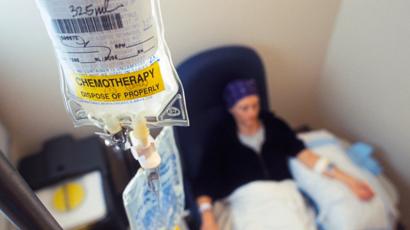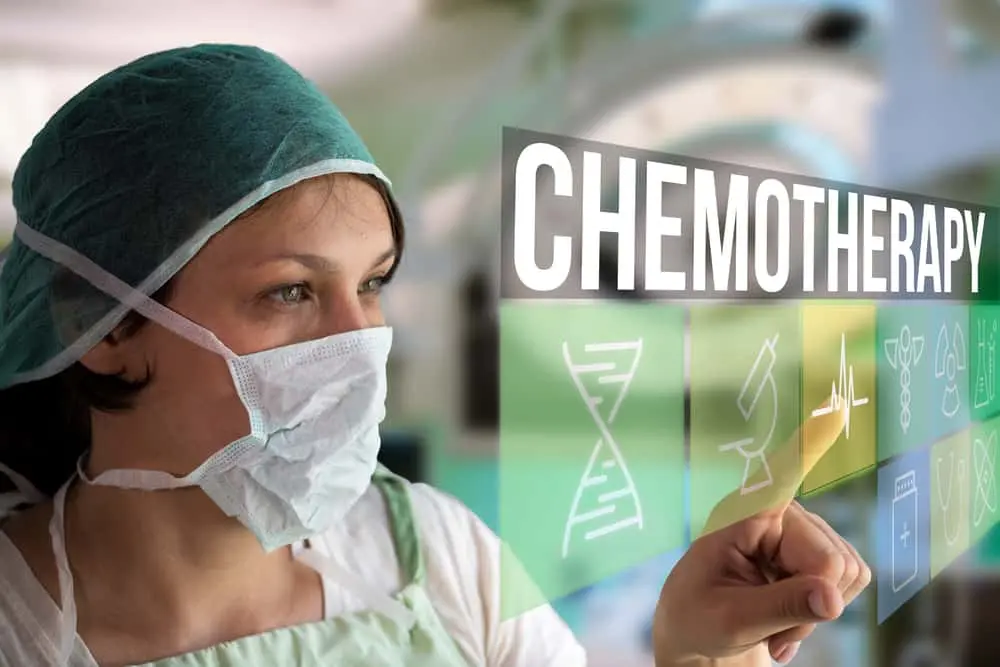Share This Article
Cancer treatment often involves chemotherapy. Chemotherapy, or often called chemo, is known as a cancer treatment. However, there are also side effects of chemotherapy, you know.
So, what are the side effects of chemotherapy? Come on, see the complete explanation below.
Chemotherapy side effects

Chemotherapy treatment can kill cells in the body. Including healthy cells. This damage to healthy cells causes side effects. Normal cells that may be damaged by chemotherapy are:
- Blood-forming cells in the bone marrow.
- Hair follicles.
- Cells in the mouth, digestive tract, and reproductive system.
Doctors usually give chemotherapy when the cancer is at a high stage. However, it is still done with consideration of preventing side effects, at the minimum possible dose level.
Chemotherapy side effects
1. The immune system is weakened
Chemotherapy can weaken the immune system. The reason is, chemotherapy kills healthy immune cells, which can make a person more susceptible to infection.
To minimize the risk of infection, try to eat healthy food, wash your hands frequently, avoid sick people, and get intensive medical care.
2. Bruising and easy bleeding
Chemotherapy can cause a person to bruise or bleed more easily. Many people after undergoing chemotherapy experience this side effect.
Bleeding after undergoing chemotherapy can be dangerous. So, it’s a good idea to take precautions to anticipate bruising and bleeding.
For example, wear gloves when gardening or use safety when using sharp tools. It’s also important to take proactive steps to reduce falls and the risk of injury.
3. Hair loss
Chemotherapy can damage hair follicles, causing hair to become weak, brittle and fall out easily. Any hair on a limb that grows back will usually be much thinner, or a different color.
This pattern usually continues until chemotherapy ends. A study in the journal Skin Therapy Letter said that 65 percent of chemotherapy patients experienced hair loss.
There is no specific treatment for preventing hair loss. However, proper hair care can slow hair loss, and encourage regrowth.
4. Nausea and vomiting
Nausea and vomiting can come on suddenly, appear after each chemotherapy session, or occur randomly.
Dietary changes, such as eating less food or avoiding certain foods, can help reduce nausea and vomiting. Anti-nausea medication can also help relieve it.
5. Respiratory problems
Chemotherapy can interfere with lung performance, and make it more difficult for patients to get maximum oxygen.
Respiratory problems can also be a side effect of some types of cancer. You must remain calm, breathe deeply, and sit while lifting your upper body with a pillow so that it can help you breathe.
6. Constipation and diarrhea
Chemotherapy can trigger digestive problems because it can damage digestive cells. Another side effect of chemotherapy is nausea, forcing people to change their diet.
This sudden change can also cause digestive problems. If you experience constipation, try taking constipation medication such as magnesium and drinking lots of water.
Make sure to check your and your family’s health regularly through Good Doctor, a 24/7 service. Take care of your and your family’s health with regular consultations with our doctor partners. Download the Good Doctor application now, click here ya!


